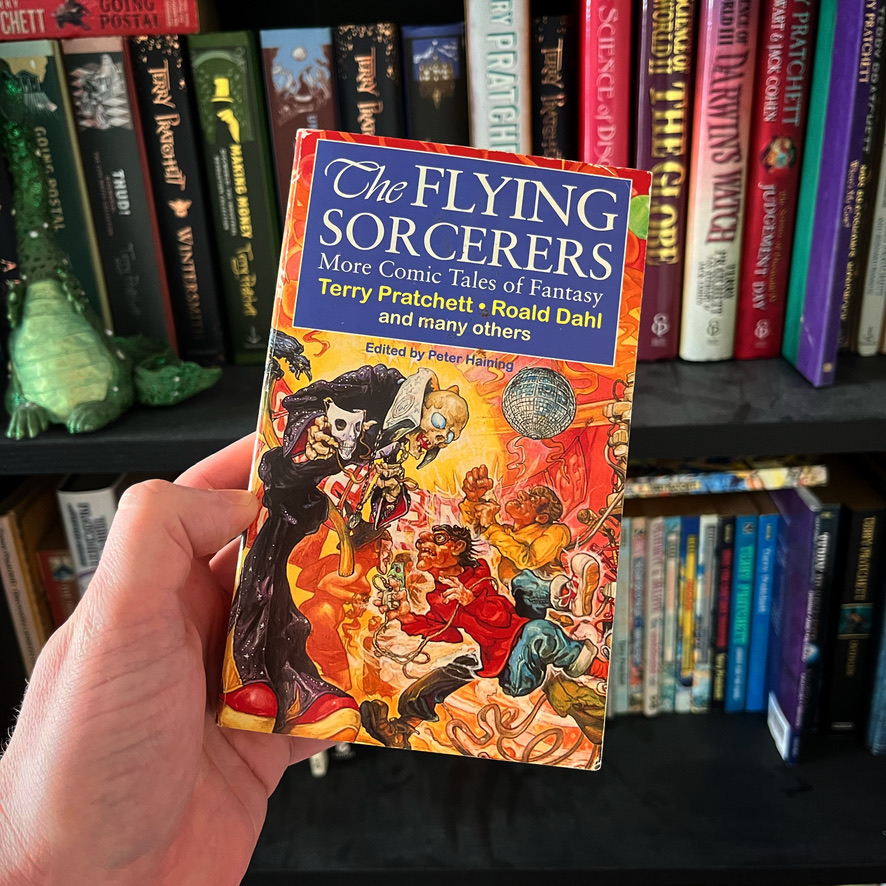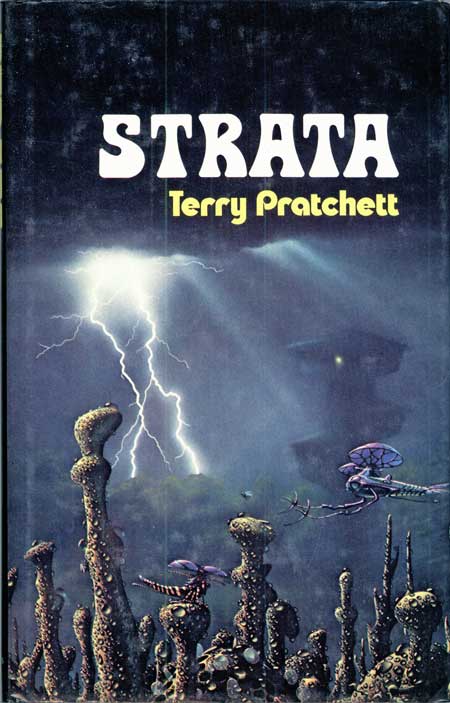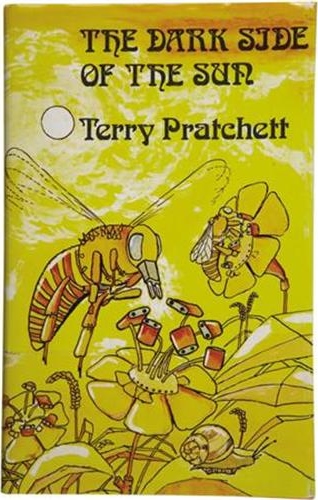#Pratchat41 – The Adventures of Crab Boy and Trouser Girl
Educator Dr Charlotte Pezaro joins Liz and Ben on a trip to the South Pelagic, where they find tsunamis, gods and science in Nation, Terry Pratchett’s standalone young adult novel from 2008.
Mau is returning from his rite of passage when a huge wave washes over his island Nation, killing everyone he has ever known. He is all alone, stuck without a soul between the states of boy and man. Lost in his despair and anger at the gods he now isn’t sure he believes in, he’s ready to give in to the dark water until he meets Daphne, the only survivor from a “trouserman” ship flung into the Nation by the wave. As they learn each others’ customs and languages, and other survivors gradually begin to arrive, Mau and Daphne must both reckon with the gods and ghosts of the Nation’s past – and work hard to ensure it has a future…
Pratchett’s own proudest achievement, and winner of multiple awards, Nation presents an alternate universe where things are a little bit different in some ways…and considerably different in others. Pratchett examines his favourite themes of belief, death, imperialism and science through a new lens, in a tale of loss, growing up, and asking big questions.
Is this Pratchett’s magnum opus? Does inventing an entire universe next door make it okay for a white Englishman to tell a story about South Pacific Islanders with the serial numbers filed off? Why did he split Australia in half ? Tell us by using the hashtag #Pratchat41 on social media to join the conversation!
Podcast: Play in new window | Download (Duration: 2:29:46 — 69.0MB)
Guest Dr Charlotte Pezaro is an educator with a PhD in pedagogy and years of science and technology communication experience. Charlotte is also a qualified primary school teacher, and works with other teachers to help them improve their skills. You can find out more about Charlotte at charlottepezaro.com, or follow her on Twitter at @dialogicedu.
Next time we’re heading back to Ankh-Morpork for a tale of journalism, vampirism and authoritarianism, the 25th Discworld novel: 2000’s The Truth! We’ll be joined by returning guest, writer and deputy culture editor for Guardian Australia, Stephanie Convery. Send us your questions using the hashtag #Pratchat42, or get them in via email: chat@pratchatpodcast.com
You’ll find the full notes and errata for this episode on our web site.
Want to help us get to the end of our six(ish) year mission and read every Pratchett book – and more? You can support us with a tip, or a subscription for as little as $2 a month, and that’s cuttin’ our own throats! See our Support Us page for details.




